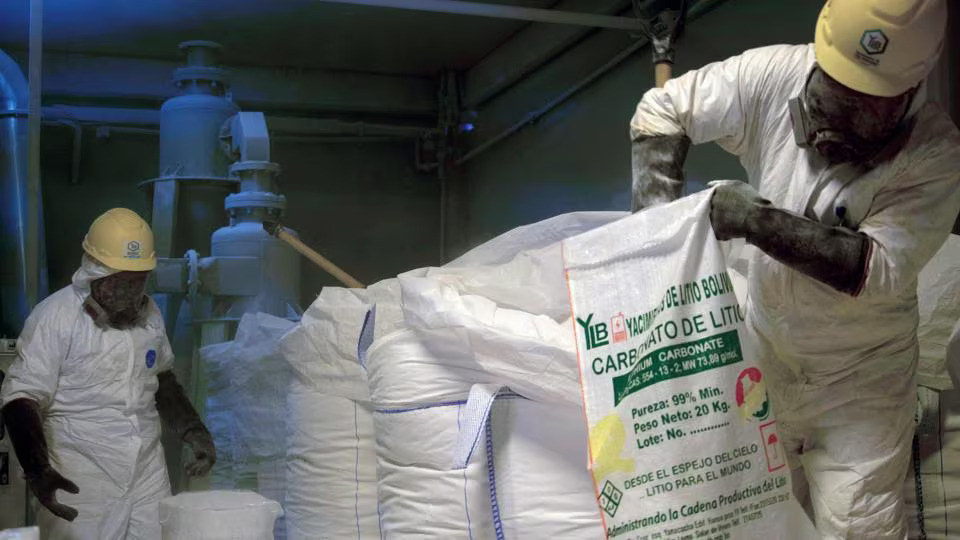Bolivia will join the industrial-scale production and export of lithium carbonate with the start-up of the new lithium carbonate plant in the second half of 2023, announced the executive president of Yacimientos de Litio Bolivianos (YLB), Carlos Ramos.
“The construction of the Lithium Carbonate Industrial Plant in Potosí is in its final stage and could be delivered in June or July to start producing from October at the industrial level,” he said on Saturday in the socialization of the progress of the process of production and industrialization of lithium with residents of the municipality of Colcha K in the department of Potosí (southwest).
Lithium carbonate is a raw material for the manufacture of batteries.

With the growing production of electric vehicles, the demand for this and other lithium derivatives has soared in the international market.
According to the prospects of the state-owned YLB, in 2023, Bolivia expects to obtain an income of US$150 million from selling some 3,000 tons of lithium carbonate; initial production in that year with the new industrial plant and projected to reach 15,000 tons in the coming years.
He commented that Yacimientos de Litio Bolivianos is developing the socialization, with precise information, of the progress of the lithium production and industrialization process with the inhabitants of the municipalities of the department of Potosí involved with the salt flats.
“It is important that all the communities are aware of the work carried out by Yacimiento de Litio Bolivianos because the benefits will reach all the inhabitants”, said Ramos.
The talk emphasized the natural lithium extraction process, which will accelerate the industrialization of lithium, install industrial complexes and generate regional economic dynamism.
Ramos recalled that the government of President Luis Arce decided to prioritize lithium industrialization projects with considerable investments to add value to the natural resource.
The South American country chose to apply direct lithium extraction technology in the Uyuni, Coipasa, and Pastos Grandes salt flats to have a better yield and accelerate the industrialization of the evaporite resource.
Bolivia has reserves of 21 million tons of lithium, one of the largest in the world, mainly in the Uyuni salt flats in the Potosí region (southwest) and another part in Coipasa in the department of Oruro (west), certified by the U.S. consulting firm SRK.
Bolivia’s lithium reserves are primarily located in the Uyuni salt flats, the world’s most enormous salt mirror at 10,000 square kilometers, Coipasa and Pastos Grandes, all in the Andean region of the country.
Currently, YLB produces lithium carbonate at the pilot plant in an area of 10,000 square kilometers in Llipi, which began operations in January 2013.

